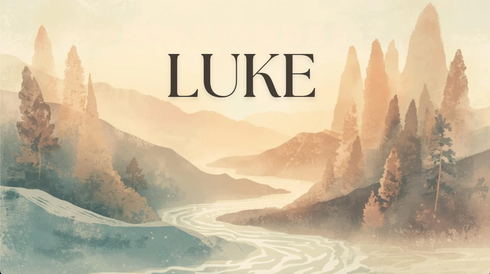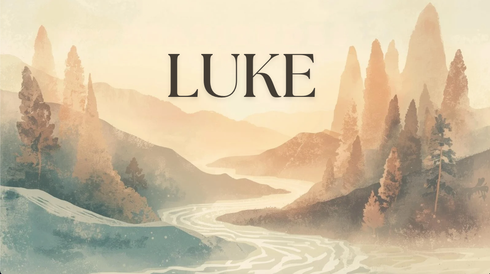
Jonah 01: The Beauty of Salvation
The opening moments set a clear promise: we’re breaking down Jonah one chapter at a time, not as a children’s tale about a whale, but as a portrait of God’s mercy at war with human bias. Jonah 1 is rich with context that matters for modern listeners—Assyria’s cruelty, Israel’s spiritual drift, and the shocking command for a Hebrew prophet to preach impending judgment to his people’s most feared enemy. That command isn’t just difficult; it is offensive to Jonah’s conscience and national loyalty. From the start we are invited to see a theme we often avoid: God’s mission is bigger than our preferences, our politics, and our pain. When Jonah runs, we’re watching a believer resist grace, not ignorance. He knows God’s goodness and fears it will reach the wrong people. That is the hook of Jonah 1, and it pulls us into our own resistance more than we might like to admit.
Before we even meet the fish, we meet the world behind the story. Nineveh represents oppressive power and real trauma. Historical accounts of Assyrian terror include grotesque public warnings and dehumanizing brutality. Against that backdrop, Jonah’s refusal reads not like petty disobedience but like a grievance hardened by history. His “no” carries the weight of collective memory. Yet scripture pushes through that wall by revealing a God whose mercy is not constrained by tribal boundaries. The text emphasizes this inversion—Israel’s prophet flees, pagan sailors pray; Jonah hides, the crew seeks moral clarity; judgment threatens, mercy breaks in. This is the beauty hiding in the storm: God saving those no one expects, often while interrupting the plans of those who should know better. Jonah 1 carefully reframes the miracle hierarchy too. The greatest wonder isn’t a sea creature with an appetite; it’s the Creator’s unwavering will to redeem and redirect even our rebellion toward life.
The voyage scene is a study in spiritual contrast. A violent wind hurls the ship toward breaking, cargo goes overboard, and sailors cry to their gods. Meanwhile, Jonah sleeps below deck, numb to the danger his disobedience created. This detail cuts deep; avoidance often looks like exhaustion or apathy. The captain’s plea—“Get up and pray to your God”—functions as a wake-up call to anyone drifting under the weight of willful detours. Then lots are cast, and Jonah’s identity spills out: Hebrew, servant of the Maker of sea and land. The sailors recoil at the irony—if the Lord made the sea, running across it is a fool’s errand. Their fear becomes reverence as the narrative crescendos. Jonah admits fault and suggests being thrown overboard, but the crew rows hard first, showing more concern for a stranger than Jonah shows for Nineveh. When they finally surrender him to the waves, the sea stills, and the sailors worship. Repentance sprouts in the unlikeliest soil, long before the prophet preaches a single word to Nineveh.
Here the fish arrives, not as a cartoon punchline, but as an instrument of mercy. God “arranged” it—language that signals intention, not accident. This arrangement resists our neat categories: rescue wrapped in discomfort, protection packaged as confinement, progress that requires a pause. Many of us recognize this experience without the sea spray—careers halted, relationships stalled, plans overturned—only to realize later that the interruption kept us from a deeper ruin. The fish is a kind of holy detour. It neither excuses Jonah’s rebellion nor crushes him for it. Instead, it preserves him for purpose, forcing stillness so he can face the God he’s been fleeing. This pairing of storm and shelter reframes divine discipline. The point isn’t payback but restoration. The sailor’s transformation and Jonah’s preservation both testify to a mercy that never arrives late, only in unexpected forms. And the lesson lands close to home: some of what we resent most may be what redirects us best.
Pulling back, the chapter undercuts the common instinct to sanitize faith into easy binaries. It asks whether we have domesticated mercy to fit our loyalties. Jonah’s theology is sound—God made heaven and earth—but his heart is selective about where that truth applies. He trusts God’s mercy for himself but fears it for his enemies. The narrative dares us to name our Nineveh: the person, group, or memory we insist is beyond compassion. The sailors model another way. They move from superstition to surrender, from survival tactics to worship, all because they witness God’s power and submit to it. Their response is an invitation to us: let the evidence of God’s sovereignty undo our cynicism. Let awe turn into allegiance. And as the chapter closes, the question lingers: will Jonah allow grace to make him whole, or will he cling to grievance even as God rescues him? That tension will carry forward, but Jonah 1 has already delivered the heart of the message—God’s salvation is beautiful. It is not always pretty. It may arrive as a storm, a rope-burn from rowing, or the cramped ribs of a whale.
Let’s read it together.
#biblebreakdown
Get this text to you daily by texting "rlcBible" to 94000.
The More we Dig, The More We Find.




